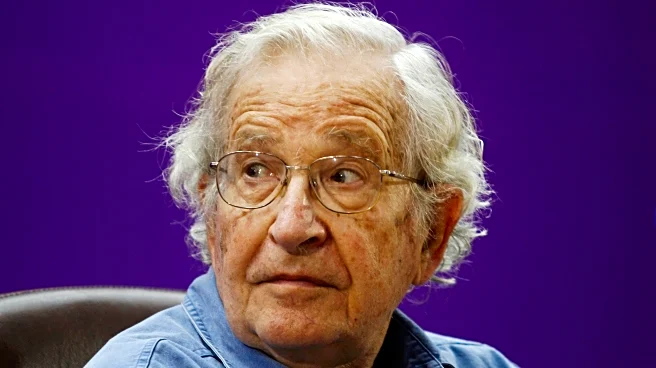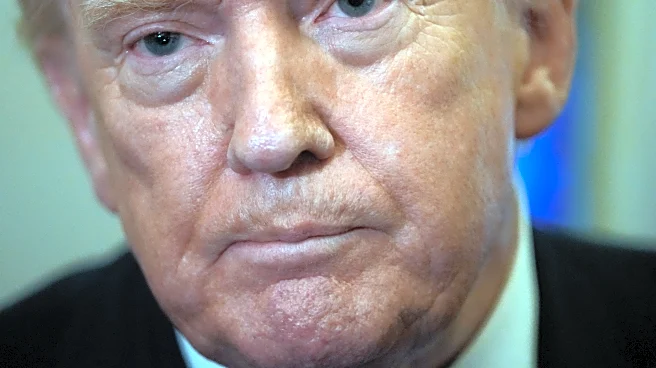What's Happening?
The National Security Council (NSC) is a pivotal entity within the U.S. government, tasked with integrating foreign and defense policy. Established in 1947, the NSC has evolved from a small presidential staff to a significant White House institution.
It is composed of key figures such as the President, Vice President, Secretary of State, and Secretary of Defense. Over the years, the NSC has expanded its role, becoming more agency-like, with a staff of 225 people, including 100 substantive professionals. This growth has led to challenges in maintaining flexibility and focusing on long-term policy coordination. The NSC's primary function is to manage the policy process, ensuring that agencies receive a fair hearing and that the President can make informed foreign policy decisions. The NSC's evolution has been driven by the need to coordinate an increasingly complex foreign policy agenda, especially post-Cold War, and the deepening partisanship in Washington.
Why It's Important?
The NSC's role is crucial in shaping U.S. foreign policy, impacting national security and international relations. Its ability to coordinate policy across various government agencies ensures that the President can make timely and informed decisions. The NSC's expansion reflects the growing complexity of global issues, requiring a coordinated approach to address challenges such as terrorism, climate change, and international trade. The NSC's effectiveness directly influences the U.S.'s ability to respond to global crises and maintain its strategic interests. As the NSC becomes more agency-like, there is a risk of bureaucratic rigidity, which could hinder its ability to adapt to new challenges. The NSC's role in managing the policy process is vital for maintaining U.S. leadership on the global stage.
What's Next?
The NSC's future involves potential restructuring to enhance its efficiency and focus on long-term policy goals. Recommendations include reducing its size, simplifying its structure, and increasing the seniority of its staff. These changes aim to restore the NSC's primary function of coordinating the policy process effectively. The President-elect faces critical decisions on how to staff and organize the NSC, which will significantly impact the success of U.S. foreign policy in the coming years. The NSC's ability to adapt to evolving global challenges will be crucial in maintaining U.S. strategic interests and responding to international crises.
Beyond the Headlines
The NSC's evolution highlights broader trends in U.S. governance, such as the increasing complexity of foreign policy issues and the impact of domestic political polarization. The NSC's role in coordinating policy reflects the need for a centralized approach to manage diverse and interconnected global challenges. The NSC's growth also underscores the importance of effective government organization in shaping policy outcomes. As the NSC continues to evolve, its ability to balance short-term and long-term priorities will be crucial in maintaining U.S. leadership and influence in international affairs.
















